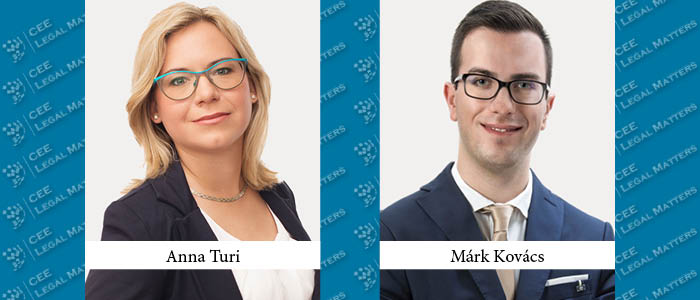Some significant amendments to the Hungarian Competition Act have entered into force. The Hungarian Competition Authority (HCA) has been very active recently in various sectors. This summary briefly describes the most important changes. Some of the changes require an update to the compliance materials for Hungary.
Antitrust / Consumer protection
As of 1 September 2023, the maximum fine which may be imposed under the Hungarian Competition Act increased from 10 % to 13 % of the worldwide net turnover of the entire group of undertakings in the last closed financial year.
- Applicable not only to antitrust but also to mergers (e.g. gun jumping) as well as to unfair commercial practices (breach of UCP/consumer protection rules)
- Unclear yet if it will have a substantial effect on the actual fines imposed
- Different maximum fines if the HCA proceeds on an EU law and HU law basis in parallel?
- Temporal scope is not defined (applicable to ongoing proceedings vs. new proceedings vs. new infringements)
Formal notice – a new tool of the HCA
- By way of a formal notice, the HCA may contact and inform an undertaking about its concerns regarding the undertaking's allegedly unlawful practices, without or prior to opening formal proceedings
Merger control
New mandatory filing thresholds
The thresholds for mandatory filing to the Hungarian Competition Authority have increased significantly (the combined threshold by 25 % and the individual threshold by 50 %). As a result, a concentration must be notified to the HCA provided the groups of undertakings achieved the following Hungarian turnover in the last closed financial year:
- Combined HUF 20bln – approx. EUR 50m (previously HUF 15bln); and
- Individual HUF 1.5bln – approx. EUR 3.75m (previously HUF 1bln)
Voluntary filing now indeed voluntary, threshold the same
In addition, at the request of the industry, the legislator has clarified that if the mandatory notification thresholds are not met, the notification of mergers exceeding a HUF 5bln combined threshold is indeed voluntary and not an obligation.
Filing form revised – new ones issued
Since 1 July 2023, new filing forms must be used. These have been further simplified but are still longer than many filing forms outside Hungary.
Furthermore, a new short form filing was introduced under certain conditions with a significantly reduced list of questions, e.g. if no overlapping and/or related markets can be identified; or creation of a full-function joint venture which will not have substantial market activity in Hungary within a foreseeable period.
Fine for gun jumping
The maximum daily fine increased from HUF 200,000 to HUF 300,000 (approx. EUR 750), but the minimum fine requirement was abolished.
DMA
The HCA has been given new powers to enforce the EU Digital Markets Act (DMA).
- The HCA may launch competition proceedings to determine whether, in their opinion, digital platform providers with significant market impact, i.e. so-called gatekeepers, are complying with their obligations under EU law. The HCA is to report the results of its investigation to the European Commission responsible for enforcement.
Enforcement trends
Sector inquiries
Enforcement trends: The HCA has conducted several accelerated sector inquiries in the sectors most affected by inflation in the last couple of years:
- food sector (dairy products, canned food, alcoholic and non-alcoholic beverages, etc.);
- previously in the building industry (bricks, lumber);
- online travel sector (Booking.com).
The HCA is entitled to carry out dawn raids in case of accelerated sector inquiries!
HCA to fight against inflation:
- The HCA – unusually for a competition authority – has developed an online price watch system on its website to compare prices of the most popular food retail products from the largest food retail chains.
Antitrust
The HCA has not lost its focus on public procurement proceedings and recently closed an eight-year-long cartel investigation and fined companies in the road construction sector as well as in the passenger transportation (boat) sector.
The HCA warned producers and importers of packaged products about possible competition law infringements by the coordinated passing of waste recycling fees (extended producer responsibility fees, EPR) to customers.
The food sector is a priority for the HCA: further to several sector inquiries, the HCA has also initiated antitrust proceedings in the sector (e.g. investigating the setting of minimum (re)sale prices of soft drinks at large retail chains).
Hungary's supreme court, the Curia, recently ruled on and provided guidance on non-poaching agreements as well as other conditions agreed on by an association.
By Anna Turi, Counsel, and Mark Kovacs, Attorney at Law, Schoenherr




